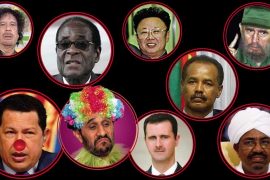1) At the Fathom Journal Richard L. Cravatts discusses the ‘al Aqsa is in danger’ trope.
“While the current round of violence was predictably blamed on Israel, in fact, as with previous clashes on the Temple Mount, the violence and rioting were neither random nor pointless and had both a strategic and tactical purpose — to degrade the Jewish claim to Jerusalem and all of Palestine by erasing the Jewish identity, history, and the religious significance to Jews of the Temple Mount as a basis to Islamicise the entire site through physical and spiritual control.”
2) Shany Mor explains ‘How Israel’s Minority Government Can Stay in Power’ at the National Interest.
“Two unusual features of Israel’s constitutional architecture, both of recent vintage, ought to lend substantial resilience to Bennett’s coalition. First, a simple vote of no confidence cannot bring down the government. Instead, there must be a “constructive” vote of no confidence that installs a new coalition, ready to govern. Second, in the event of early elections, the premiership would automatically pass from Bennett to his understudy, Alternate Prime Minister Yair Lapid. In tandem, these provisions have the unintentional effect of lending considerable durability to coalitions based more on shared antagonism than positive agendas.”
3) Ahead of elections in Lebanon, Teddy Sapir analyses ‘The Political Power of the Shiite Opposition: Can Hezbollah be Weakened through a Political Process?’ at the Alma Center.
“The upcoming Lebanese elections in May 2022 are not expected to cause much turbulence in the Lebanese political system. What was is what will be, the same problems and the same tensions. Tensions will once again arise between the March 8 Alliance and the March 14 Alliance, as Hezbollah will pull the strings and issue ultimatums. After the elections, the Lebanese Christian president will be elected, and once more, the system will be accompanied by power struggles. The Sunni prime minister will not be able to form a government, a coalition, and a cabinet will convene without representatives of the Shiite duo (“al-Thani al-Shi’i” -original quote), Hezbollah and Amal. The latter will continue to run Lebanon without being held responsible for the state’s downfall.”
4) At the INSS Eden Kaduri and Jony Essa provide a situation assessment of ‘11 Years of War in Syria’.
“March 2022 marked 11 years since the start of the civil war in Syria, which ended with a bitter defeat for the opposition and a “hollow victory” for Syrian President Bashar al-Assad – i.e., without effective control of all parts of the country. The war changed the face of Syria: it is now split into four regions, each under the influence of foreign forces; an economic crisis is ongoing, with no signs of a solution; the humanitarian situation is grave; many refugees have fled the country and many displaced persons remain in its territory; there is a long-term presence of foreign players; and the country is torn by the tension between the efforts of the Assad regime to normalize relations with Arab countries and its close ties to Iran. All these factors will affect the future stabilization of the Syrian state.”




